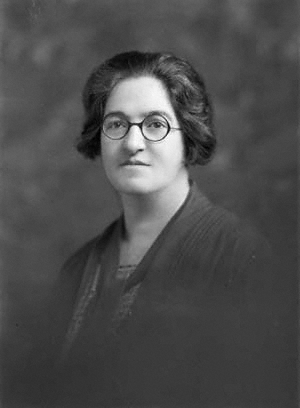Sunderland’s first female MP has had a blue plaque unveiled in her honour.
Marion Phillips – a Labour politician and social activist – held her Sunderland seat from 1929 to 1931.
As well as representing the north east at Westminster, Phillips was a feminist who campaigned to educate women, encouraging them to stand up for their rights and to take part in social and political movements.
Though born in Australia, Marion Phillips moved to the UK in 1904. After graduating from the London School of Economics, she was involved in a number of social causes.
She worked on a Royal Commission into the Poor Laws and edited the Labour Woman publication.
In 1918, she became the Labour Party’s first Chief Woman Officer, a position that involved travelling the country and meeting women from various walks of life.
Her work with the women of the Durham coalfield – which included organising relief for the wives and children of Durham miners during the 1926 General Strike – helped inspire her decision to stand for election in Sunderland.
She also served as secretary of the Standing Joint Committee of Industrial Women’s Organisations and worked with the International Network of Labour and Socialist Women.
The campaign to put up a blue plaque in honour of Marion Phillips was led by University of Sunderland academic Dr Sarah Hellawell.
The plaque was recently unveiled in a ceremony at the former Labour Party Committee Rooms in Foyle Street. The ceremony was attended by the Labour MP for Houghton and Sunderland South, Bridget Phillipson.
Dr Hellawell, who lectures in modern British history, said, “During the last 18 months, I have been busy delivering a number of public talks as part of the Suffrage Centenary commemorations.”
“I was left surprised that so few people have actually heard of Marion Phillips. Because of this, I have delved a little deeper into the archival sources of this interesting politician and her work in the north east.”
“During the past couple of years, the UK has commemorated a number of women from the suffrage movement and the first generation of women MPs.”
“My research focuses on the history of women’s political activism and it is an honour to shed light on Phillips’ work in Sunderland. It seems right that Sunderland should commemorate Phillips with a plaque.”
“She was a champion for local people and many Sunderland constituents spoke about their MP with admiration. That said, her headstrong attitude sometimes led to tension with some of her colleagues in the Labour Party.”
“I’m thrilled that Marion Phillips is now commemorated with a blue plaque and that my research has helped to raise awareness of this important figure from history who made an impact locally, nationally and internationally.”
Bridget Phillipson MP said, “I was delighted to attend the unveiling of the blue plaque to commemorate Marion Phillips.”
“The plaque marks 90 years since her election to Parliament in 1929 and pays tribute to her tireless work on behalf of the people of Sunderland.”
“Marion dedicated her life to fighting for improved education, women’s rights and the eradication of poverty, and her impact on public and political life was far-reaching despite only serving as an MP for two years.”
“Marion’s legacy is testimony to the importance of ensuring women are engaged in politics, and will serve as a reminder that whilst much has improved since 1929, there is still more to be done.”
(The featured image is a photograph of Marion Phillips from 1929.)
















